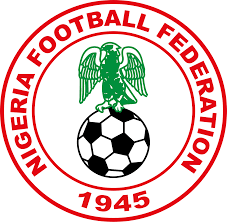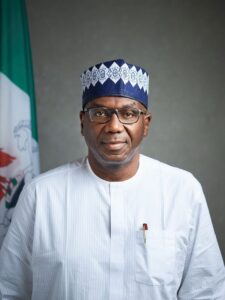
Nigeria does not lack football talent; the problem is what it does with it.
In the dusty streets of Kaduna, the cramped parks of Ajegunle, the open fields of Jos, and the slums of Port Harcourt, footballs are kicked with the kind of raw energy that can power a continent. Barefoot boys curl shots that could grace the Nou Camp. Teenagers dribble with flair that would make Brazilians pause mid-samba. But like crude oil before it, Nigerian football talent flows out unrefined, unprocessed, and unprotected. What should be a national goldmine ends up as a cheap export.
It is the Nigerian paradox: abundance without structure.
Why does a country that produces Jay-Jay Okocha, Rashidi Yekini, Kanu Nwankwo, Mikel Obi, Asisat Oshoala, and Victor Osimhen still struggle to qualify for tournaments it once dominated? Why is a nation that exports footballers to Europe by the hundreds still incapable of running a functional domestic league? Why do we cheer when our players lift trophies abroad, but groan when the Super Eagles or Falcons take to the pitch at home?
Like pencils in the Proshare parable, footballers in Nigeria are proof of latent genius, but genius wasted by poor systems. Talent is discovered by accident, nurtured by hunger, and exported by necessity. The country remains a nursery where dreams are born but rarely raised.
At the heart of Nigeria’s football stagnation is the absence of structure. Leagues that should be hubs of entertainment and revenue are reduced to shadows—poorly marketed, inconsistently run, and plagued by financial instability. Stadiums rot, pitches resemble farmland, referees chase brown envelopes, and fans vote with their feet—towards European leagues.
Meanwhile, academies mushroom without regulation. Every street corner has a “football academy,” but most lack curriculum, philosophy, or scouting pipelines. They function more as holding bays for hopefuls waiting for that one European scout who might whisk them away. The result? Quantity without quality, hope without guarantee.
Football, like every sector in Nigeria, has not escaped the chokehold of governance failure. Football administration is treated as a political trophy, not a technical responsibility. Chairmanships are traded like contracts. Elections are bought, selections are lobbied, and the round leather game is caught in the square politics of Abuja.
The “big men” who run Nigerian football see it not as an industry but as a podium for visibility, photo-ops, and contracts. Long-term planning is sacrificed on the altar of immediate glory. Youth development takes a back seat to the scramble for travel allowances and tournament appearance fees.
Every year, Nigerian football exports another batch of teenagers—some succeed, most vanish. Europe, Asia, even obscure leagues in Malta or Uzbekistan become escape routes. Our talent pipeline is an export industry where the country gains little value. No royalties, no structured development deals, no reinvestment into the grassroots.
Imagine if Nollywood exported actors without producing films at home. Imagine if Afrobeats shipped singers abroad but never created an industry in Lagos. That is the absurdity of Nigerian football. We celebrate individual exports but ignore institutional collapse.
Talent, on its own, is not enough. It needs context: coaching, tactics, psychology, fitness, infrastructure. The reason Brazil and Argentina churn out world-class players is not just street football; it is the web of clubs, scouts, academies, and national strategy that converts raw energy into global excellence. Nigeria has the first part, but refuses to build the second.
A 14-year-old boy juggling oranges in Kano has more flair than many professionals, but he will likely end up as just another “what could have been.” And in Nigeria, “what could have been” is the loudest national anthem.
Rebuild the domestic league: without a strong league, football remains an export hustle.
Invest in grassroots with structure, not slogans: coaching education, regulated academies, and youth leagues.
Professionalize governance: let football be run by football people, not political proxies.
Monetize fan culture: Nigerians already love football; the problem is they do not love our football. That has to change
Nigeria’s football story is the story of abundance wasted. A land where talent grows wild, but harvests are few. We have the boots, but not the glory. We have the players, but not the system. And until Nigeria treats football as an industry, not a lottery, we will continue to clap for others while mourning our own missed chances.
Football is not just a game in Nigeria; it is an untapped oil well. But like oil, unless refined, it stains more than it shines.




